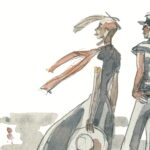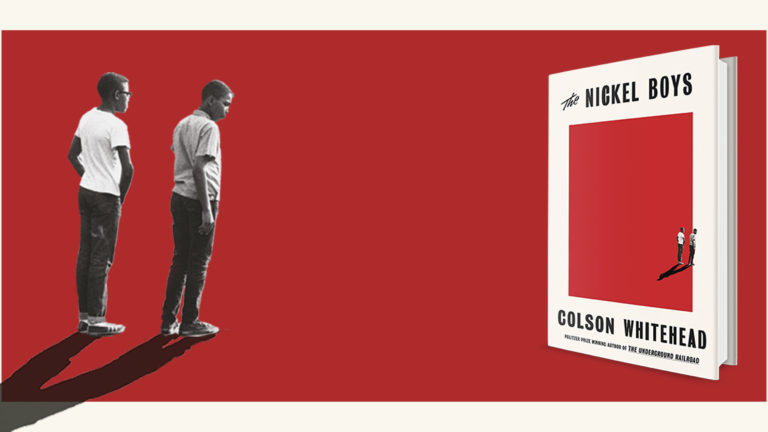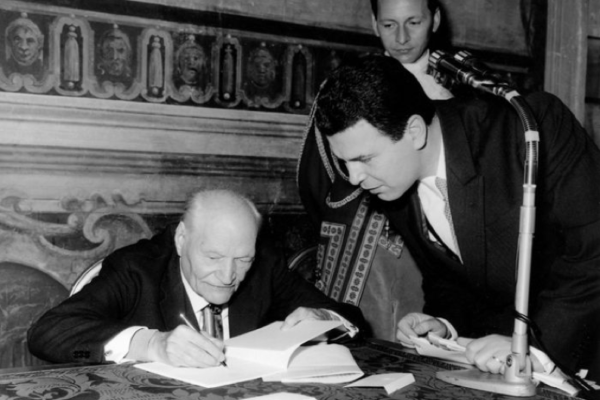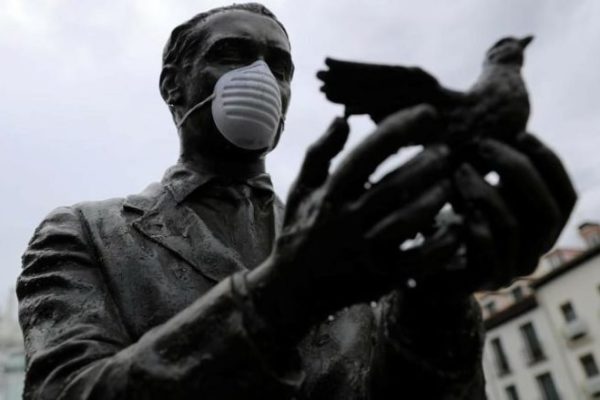Colson Whitehead is an well-known author among YAWP readers but he is not to the average italian readership. The Afro-american author always stood up for social equality and minorities in general since his debut novel, The Intuitionist, published in 1999.
The Nickel boys (Penguin 2019) follows this path. In this two-hundred-page novel, Whiteheads tells us a story that, according to the Italian press, was morbid and violent. The truth is that the protagonist’s experiences – Elwood’s experiences – are real. The psycho-physical pain endured by black people (portrayed by the character of Harriet, Elwood’s grandmother) is represented in a magistral way. Whitehead is able to convey in a blunt but sincere style the suffering of entire generations, a whole ethnic group scarred forever. This is known as the black trauma, the author himself is the product of this condition inherited by millions of men and women belonging to the black community, as much as the trauma of persecution is rooted in the jewish community or the trauma of the lack of a nation in countless communities around the world.

Colson Whitehead has a curriculum that speaks for himself and his talent: he started with a brilliant University career at Harvard and received the endorsement by John Updike on The New Yorker in 2001.
Whitehead can try too hard (“Thick black mustaches shrub beneath their nostrils, intrepid vegetation on petrous faces”), but generally his writing does what writing should do; it refreshes our sense of the world, as when the hissing of steam heat is described as “sonic adipose” and a pedestrian’s eyes greet “the steel-eyed cop on the corner with the sun in his buttons.”
With this introduction, it is easy to imagine why Whitehead is an award-winning author in U.S. as much as it is hard to understand that among the italian readers – who are used to a bourgeoise prose, mainly written by men, and that always deals with the same topics- he has not reached a lot of success.
Whitehead’s style is without a doubt challenging. For the non-native-English speaker, understanding every detail of the book is very difficult. It is not a recommended reading for those who approach the language casually. Not only that. The facts that are told in the book are no easier to understand than the writing style of the author. The Black trauma is not something that anybody can easily assimilate, not even the black community itself, which is struggling with this issue day in and day out.
The daily life described by Whitehead is very distant from the idea that the Italian audience has about not making it to the end of the month; it is very difficult for an Italian to sympathise for an American young black man who sees in the birth of the decree law against racial discrimination not the end of it, but the beginning.
The racism that runs among white people leads them to feel disgust when in presence of Afro-American people. This leads Afro-Americans to feel hate for themselves. This process is known as “interiorised racism” and we are still very far from seeing the end of it. To the latter group belongs the character of Harriet, Elwood’s grandmother, a lonely woman who prefers to steer clear from the fighting for black people’s rights that occurred in the 60s, the time in which the novel The Nickel Boys takes place. The truth is, this character only wants to survive another day in those threatening times. Her choice can be explained by analysing her life experience, considering both the bad and the good from which she cannot run from: Harriet lost her husband, her daughter and found herself with a very young nephew to raise. Her greatest wish is for Elwood to become a good man, a quiet man, someone who strives to survive just like her, someone who lost many things in life and fights so to protect what is left and more. Of course, the two being a black family does not make things easier for a surrogate single mother who struggles on her day job and brings the food home everyday. As a matter of fact, when Harriet finds out about Elwood’s deep admiration for reverend King – who will be murdered shortly after the end of the novel, in 1968 – her violent reaction reflects her fear of losing the only thing left by her daughter: her nephew Elwood
On the other side, Elwood is devoted disciple of Martin Luter King; not only does he follow his teachings, he questions them. When Elwood finds out he’s got the chance to go to college despite his financial situation, he decides to go to class via hitch-hiking. The problem occurs when it turns out the vehicle is stolen and the police orders the driver to pull the car over. In that moment, Elwood’s disgrace takes real form.
It is partially because of chance and because of the systematic criminalisation of black people that the protagonist understands that he is both a student and a prisoner in Nickel – the school is based upon Whitehead’s experiences in Dozier School for Boys in Marianna, Florida, as he analysed the Tampa Bay Times archives and studying the Report on the Investigation into the Deaths and Burials at the Former Arthur G. Dozier School for Boys in Marianna, Florida (University of South Florida, 2016). He also read other books by people who studied at Dozier and reported their experience in the reformatory school, such as The White Boys: An American Tragedy (Roger Dean Kiser) and The Boys of the Dark: A story of betrayal and Redemption in the Deep South (Robin Gaby Fisher, Michal O’McCarthyy, Robert W. Straley).
In the second half of Whitehead’s novel, the reader will come across a series of episodes that tell how the students were regularly tortured and harassed at Nickel, and how the bodies are hidden in case of death, so that “involuntary manslaughter” becomes “natural death”.
Whitehead compares the wave of positivity ignited by young Rosa Parks in Montgomery, Alabama, in 1955 with the story of a single individual who lives a solitary and persecuted life because of white people’s aggressiveness against black people.
Elwood strongly believes that Martin Luter King’s teachings are right and moved by moral beliefs that will set free his brothers and sisters from oppression, but at the cost of his own life.
The epilogue of The Nickel Boys is a great way to describe the insignificance of a black person’s life to the eyes of a society mainly composed of white people: Turner, a fellow student of Elwood’s steals his name in order to escape from the reformatory/lager school. Whitehead highlights with mastery what we could call social neglect: by stealing a dead student’s name we can see how flawed and neglectful society is towards black people living in Nickel – and of course, in Dozier.
Turner manages to live for twenty more years with nobody noticing he is not who he says to be. In the end, he goes back to Nickel unaware of being chased or not, only to find out nothing bad would happen to him except facing his own traumas.
The Nickel Boys is not a novel with an uplifting finale; the reader is left with an eerie feeling about the future. There is a strong feeling of resignation in the last chapters of the book, especially in the final pages. Turner returns to Richmond, a place very dear to Elwood’s childhood.
Turner/Eliwood is left with no energy to pursue any sort of revenge or chase the oppressors who killed the true Elwood, who died shot like many others did in Nickel’s academic prison.
Jack Turner, after confessing the truth to his beloved Millie, he walks back the path of Elwood’s life until his starting point. There, he will not meet Harriet, who died a year after his nephew, and he will not find Elwood; today’s Richmond is no more Elwood’s Richmond, where he used to read novels and raced people to clean the dishes. However, Turner as an individual is too old to remember his old friend’s tales. He can only tell his story.
Sara Giudice









